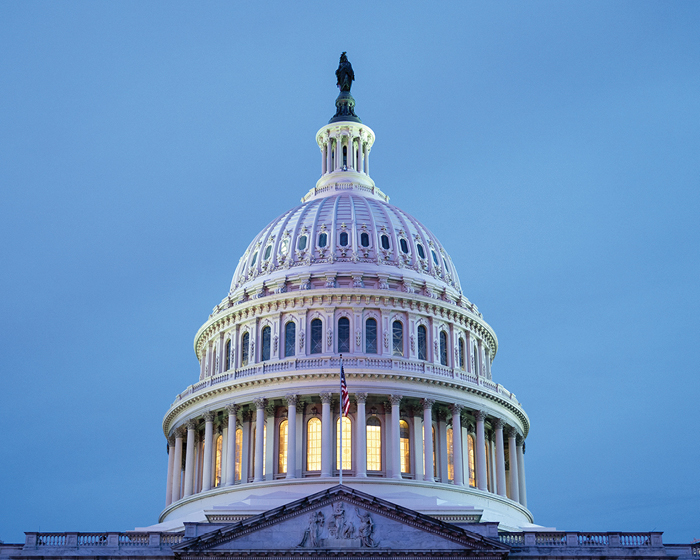Key Takeaways
- Congress has a few days to work out a funding compromise to prevent a government shutdown.
- The Affordable Care Act’s enhanced tax credits remain a key issue for negotiations.
- The CBO says that removing the enhancement could lead to a spike in healthcare premiums.
- Republicans hope a surge of refunds will turn around public perceptions of the OBBBA.
- The corporate alternative minimum tax is diluting some of the Republican tax bill's benefits.
It’s now only days before federal funding runs out, and the nation faces the prospect of a government shutdown. Congress and President Trump have until September 30 to reach an agreement to keep the government running—and based on their public statements, the sides are far apart. With the administration planning to rewrite the rules on how federal agencies and departments respond to a funding lapse, this could be uncharted territory.
Republicans will need at least a few Democratic votes to pass any spending measure in the Senate. (Unless they decide to change the filibuster rules.) The Democratic leadership has chosen to focus on healthcare coverage as their primary demand, asking that any agreement reverse cuts to Medicaid enacted by the One Big Beautiful Bill Act and to extend the enhanced premium tax credits available for the Affordable Care Act exchanges.
Since Republicans would be loath to reverse any part of the massive legislation they spent most of the year trying to pass, that would leave the enhanced credits as the primary area of negotiation. The credits themselves were created with the ACA in 2010, but the enhancement—expanding the eligibility requirements and increasing their potential value—was passed in 2021, and extended in 2022 with the Inflation Reduction Act. Unless Congress acts, the enhancement will expire at the end of the year.
The Congressional Budget Office recently updated its estimates for the potential consequences of the credits’ expiration. In a Sept. 18 letter to Democratic leaders, the CBO said that extending the current credits would increase the number of Americans with healthcare insurance by 3.8 million (compared to the baseline if the credits expire). That would coincide with an increase in overall premiums—the CBO estimates that benchmark premiums in exchanges would be 7.6 percent higher over the next decade if the credits are not extended, as healthier enrollees leave. CBO also estimates that a permanent extension would cost $350 billion over the next 10 years.
Some Republicans have noted that those who would be most directly impacted by the expiration may have relatively high incomes, since the enhancement removed a rule that the credits are only available to households at 400 percent or below the federal poverty level.
While the credits’ expiration was put into place before Trump took office for the second time, the potential drop in enrollment gives them a way to tie it to one of Trump’s most controversial policies–the OBBBA’s drawback in Medicaid coverage. We’ll know soon if it’s an area where the parties can find common ground.
Recent Tax Pieces:
Trump’s Tax Cut Is Underwater. Can a ‘Refund Boom’ Save It? – Andrew Duehren, The New York Times:
Many of the cuts included in the law — including Mr. Trump’s campaign promises to reduce taxes on tips and overtime, as well as an increase to the standard deduction and child tax credit — are retroactive to the start of this year. Because the Internal Revenue Service has not yet changed how taxes are withheld from workers’ paychecks to reflect the new law, Americans will largely claim the cuts after they file taxes early next year.
Tip Tax Regs Prompt Questions On Eligibility, Withholding – Asha Glover, Law360 Tax Authority ($):
While the proposed rules list jobs that will typically be eligible for the tax break, the IRS will need to clarify how the law applies to workers, like social media influencers, who haven't traditionally fallen under the umbrella of tipped workers, experts told Law360. Meanwhile, employers will be expecting guidance on withholding tax changes.
Lucrative Trump Tax Break for Tech, Pharma Hits Biden-Era Snag – Caitlin Reilly and Erik Wasson, Bloomberg Tax ($):
Trump’s recently enacted tax law sweetened a break for corporate research and development investments, a provision especially valuable to technology, pharmaceutical and manufacturing businesses. But some businesses won’t be able to take full advantage of the break, thanks to the Biden-era provision that lobbyists argue threatens to curtail the economic boost in Republicans’ tax law.
Dismantling of Justice Department’s Tax Division Has Resumed – Nathan J. Richman, Tax Notes ($):
Kelly said she couldn’t predict the new timeline under which the reorganization of the Justice Department’s tax functions will be completed.
The conversion of the Tax Division into components of the Civil and Criminal divisions will be a big process, according to Kelly. “It involves changing the regs, it involves changing the U.S. attorney’s manual . . . it involves changing out computers and appointing people into different positions. There may be some relocation for the staff,” she said.
Brain Drain at IRS Chief Counsel to Stymie GOP Tax Law Rollout – Erin Schilling and Erin Slowery, Bloomberg Tax:
“What it comes down to is prioritization,” said Michael Mundaca, assistant secretary for tax policy in the Obama Treasury Department. “The organization is going to have fewer people to get stuff done, so the stuff that gets done is high priority.”
Make a habit of sustained success.



